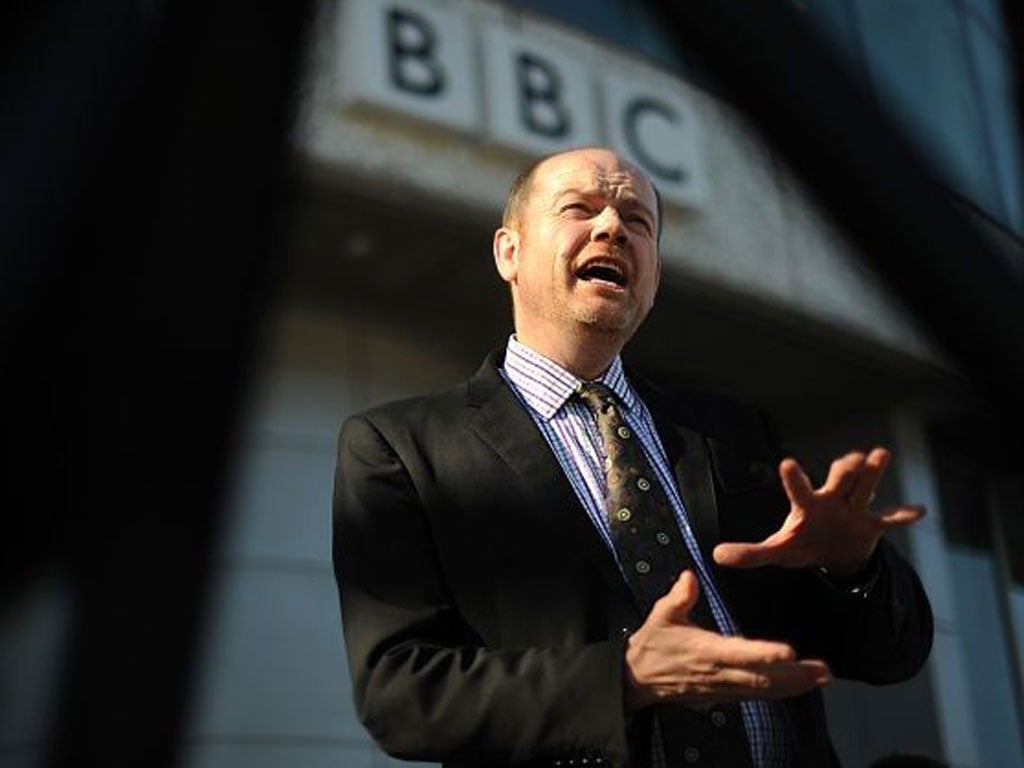BBC boss to stand down after the 'amazing summer'

Mark Thompson wrote yesterday to BBC staff to tell them of his decision to stand down as Director-General of the BBC in the autumn, "once the Olympics and the rest of the amazing summer of 2012 are over".
He admitted his eight years in the post had not been without their difficulties, telling colleagues: "We've weathered a series of lively storms and been through some trying as well as some very successful times together."
Mr Thompson, pictured, has caused anger at the BBC for his negotiation of a licence fee settlement that led to the loss of 2,000 posts, and his determination to drive through the relocation of BBC services and 1,000 jobs to Salford. But others credit him for securing the future of the corporation and making it more representative of its audience.
His time in charge has included several broadcasting controversies, including the "Sachsgate" voicemail humiliation of actor Andrew Sachs by Russell Brand and Jonathan Ross on Radio 2 and the "Crowngate" saga that led to the resignation of then BBC One controller Peter Fincham for the misrepresentation of footage of the Queen.
Mr Thompson has also faced criticism for the size of his salary, which reached £834,000 in 2010, and the money paid to star presenters such as Ross, who was earning £6m a year.
Lord Patten, the new chairman of the BBC Trust, has already indicated the next BBC Director-General will be paid "substantially" less than the current incumbent. But yesterday he paid tribute to Mr Thompson as "an outstanding Director--General of the BBC" who had led the organisation during a difficult time. "He took over during a traumatic period in the corporation's history and subsequently enhanced its reputation for creativity and quality, while setting the course for the BBC's digital future."
In his email to staff, Mr Thompson indicated he hoped the BBC's coverage of the Olympics and a summer that also includes the Cultural Olympiad and the Golden Jubilee would demonstrate he was leaving the organisation in a stronger position than when he became Director-General in 2004.
Join our commenting forum
Join thought-provoking conversations, follow other Independent readers and see their replies
Comments
Bookmark popover
Removed from bookmarks